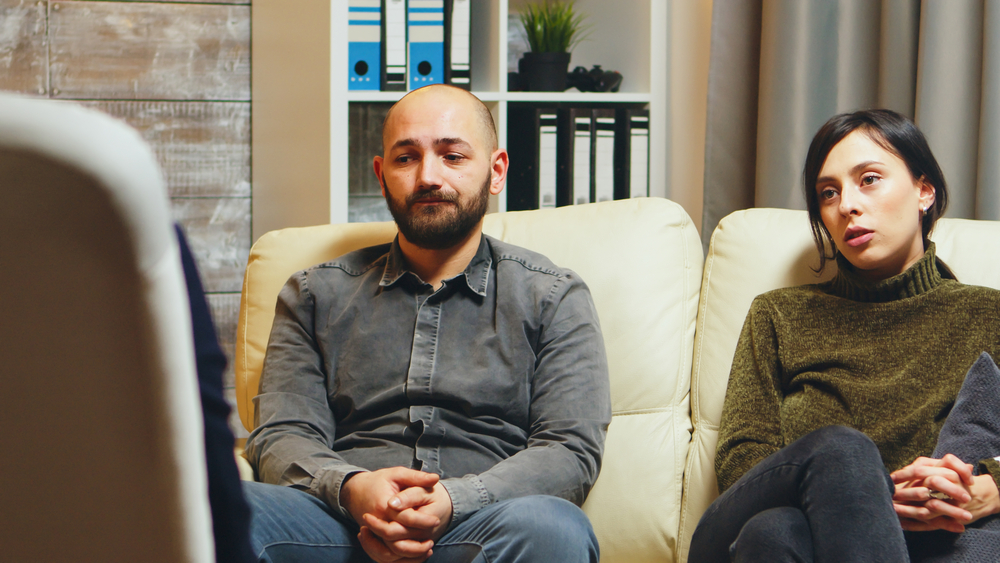Alexithymia is a condition that affects a person’s ability to recognize and express their emotions. This condition has been linked to numerous problems in interpersonal relationships, making it a crucial issue to address in couples counseling. We will provide some insights into the impact of alexithymia in relationships and how relationship counseling in Westchester, NY, can help couples cope with the condition.
Introduction
Alexithymia is a term coined by psychotherapist Peter Sifneos in the 1970s. It is derived from the Greek words “a-” (without), “lexis” (words), and “thymos” (emotions), which means “without words for emotions.” Individuals with alexithymia have difficulty identifying, describing, and expressing their feelings, making it challenging for them to connect with others emotionally.
For couples, alexithymia can be particularly challenging, as it can hinder emotional intimacy and create communication barriers. This can lead to conflict, misunderstandings, and a lack of emotional connection.
Understanding Alexithymia
Causes and Symptoms
Alexithymia can be caused by various factors, including genetics, brain development, and childhood experiences. Research has shown that individuals with alexithymia have a difference in the way their brain processes emotions, making it more difficult for them to recognize and express them.
Symptoms of alexithymia may include difficulty identifying feelings, a tendency to minimize or ignore emotional experiences, and an emphasis on external experiences rather than internal emotions.
Types of Alexithymia
There are two types of alexithymia: primary and secondary. Primary alexithymia is a developmental condition that individuals are born with, while secondary alexithymia is acquired later in life due to traumatic experiences, such as abuse, neglect, or PTSD.
Primary alexithymia is more challenging to treat, as it is deeply ingrained in a person’s personality. However, secondary alexithymia can be addressed through therapy, which makes relationship counseling in Westchester, NY, an important resource for individuals struggling with this condition.
Impact of Alexithymia on Relationships
Communication Problems
Individuals with alexithymia may struggle to express themselves verbally or nonverbally, making it challenging for their partner to understand their emotions. This can lead to communication breakdowns, misunderstandings, and feelings of frustration on both sides.
In relationship counseling, couples can learn how to communicate more effectively by identifying their communication styles, learning how to actively listen, and using “I” statements to express their feelings.
Emotional Disconnect
Alexithymia can create a sense of emotional distance between partners, as individuals with the condition may struggle to connect with their emotions and express them to their partner. This can make it difficult for their partner to feel emotionally supported and understood.
Try to explore ways to foster emotional intimacy, such as sharing personal experiences, expressing gratitude, and engaging in activities that promote bonding.
Difficulty in Resolving Conflicts
Conflicts are a natural part of any relationship, but individuals with alexithymia may struggle to resolve them effectively. They may have difficulty identifying their emotions or understanding their partner’s point of view, leading to a breakdown in communication and a failure to find a resolution.
Intimacy and Sexual Problems
Alexithymia can also impact physical intimacy in relationships, as individuals with the condition may struggle to connect emotionally and feel pleasure during sexual activities. They may also have difficulty expressing their desires or understanding their partner’s needs, leading to sexual dissatisfaction or a lack of intimacy.
Explore ways to enhance your sexual experiences by improving communication, increasing emotional intimacy, and exploring each other’s desires and boundaries.
Impact on Partner’s Mental Health
Living with a partner who has alexithymia can be challenging, as it can create feelings of frustration, isolation, and emotional disconnection. It can also lead to feelings of self-doubt or guilt, as the partner may feel responsible for their partner’s emotional struggles.
Coping with Alexithymia in Relationships
Seeking Professional Help
Individuals with alexithymia may benefit from individual therapy or counseling to address their emotional struggles and learn coping strategies. Relationship counseling in Westchester, NY, can also be an effective resource for couples struggling with alexithymia in their relationship.
Developing Emotional Intelligence
Learning to identify and express emotions is a critical skill for individuals with alexithymia. Couples can work together to develop emotional intelligence by practicing mindfulness, journaling, or engaging in activities that promote emotional awareness.
Improving Communication
Effective communication is key to any healthy relationship. Couples can work on improving their communication skills by learning active listening techniques, using “I” statements, and practicing empathy and understanding.
Enhancing Empathy and Understanding
Partners of individuals with alexithymia can benefit from learning how to empathize with their partner’s struggles and understand their perspective. They can also work on improving their own emotional awareness and expression to create a more supportive and understanding relationship.
Conclusion
Alexithymia can be a challenging condition to navigate in a relationship, but it is not insurmountable. With the help of relationship counseling in Westchester, NY, couples can learn effective coping strategies, improve communication and emotional intimacy, and build a healthier, more supportive relationship.
It is important to remember that seeking professional help is not a sign of weakness, but a courageous step towards improving oneself and one’s relationship. With the right support and guidance, couples can overcome the challenges of alexithymia and build a stronger, more connected bond with their partner.

